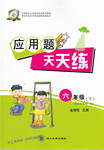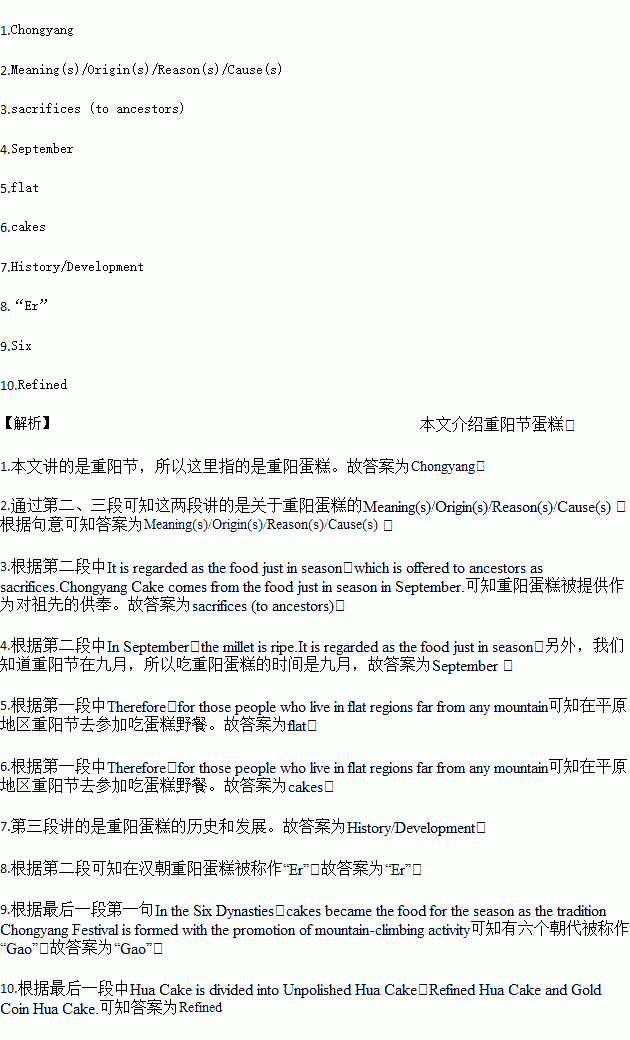题目内容
On the day of Chongyang Festival,one traditional activity is to climb mountains.However,mountains are not everywhere for people to climb.Therefore,for those people who live in flat regions far from any mountain,the problem is solved by going for a picnic and eating cakes.The Chinese word for cake is Gao,a homonym of the Chinese word for high.Mountains are high,so eating cakes can,by a stretch of the imagination,take the place of going for a climb.
The tradition of eating cakes in September is originated from the ancient times.Though the name of “Gao” started from the Six Dynasties,the cakes had already existed in Han Dynasty,which was called “Er”.in Chinese at that time.It is made of rice flour,which is classified into two types:paddy(水稻) rice flour and millet(粟米) rice flour.They are mixed together,which is named “Er”.In September,the millet is ripe.It is regarded as the food just in season,which is offered to ancestors as sacrifices.Chongyang Cake comes from the food just in season in September.That is why Chongyang Cake is recommended for offering sacrifices to ancestors on the day of Chongyang Festival.
In the Six Dynasties,cakes became the food for the season as the tradition Chongyang Festival is formed with the promotion of mountain?climbing activity.As the cakes appeared in different forms,Chongyang Cake was also called Hua (Colorful) Cake in the Ming & Qing Dynasties and became the food for the season in urban and rural areas.Hua Cake is divided into Unpolished Hua Cake,Refined Hua Cake and Gold Coin Hua Cake.Unpolished Hua Cake is marked with caraway (香菜) leaves,sandwiched with date,peach kernel (果仁) and other unpolished dry fruits.Refined Hua Cake is made in either two or three layers,with each sandwiched with refined glazed fruits,such as preserved apple,peach and apricot.
Title: 1. Cake | |
2. | ·taking the place of going for a climb ·being offered as 3. |
Eating time | In 4. |
Related activities | (1)in mountain areas:climbing mountains (2)in 5. areas: ·going for a picnic ·eating 6. |
7. | (1)Han Dynasty:called 8. ·paddy rice flour ·millet rice flour (2) 9. Dynasties:called “Gao” ·Unpolished Hua Cake ·10. Hua Cake ·Gold Coin Hua Cake |
 应用题天天练四川大学出版社系列答案
应用题天天练四川大学出版社系列答案

 e book will have an adventure, traveling far and wide with each new reader who finds it.
e book will have an adventure, traveling far and wide with each new reader who finds it.